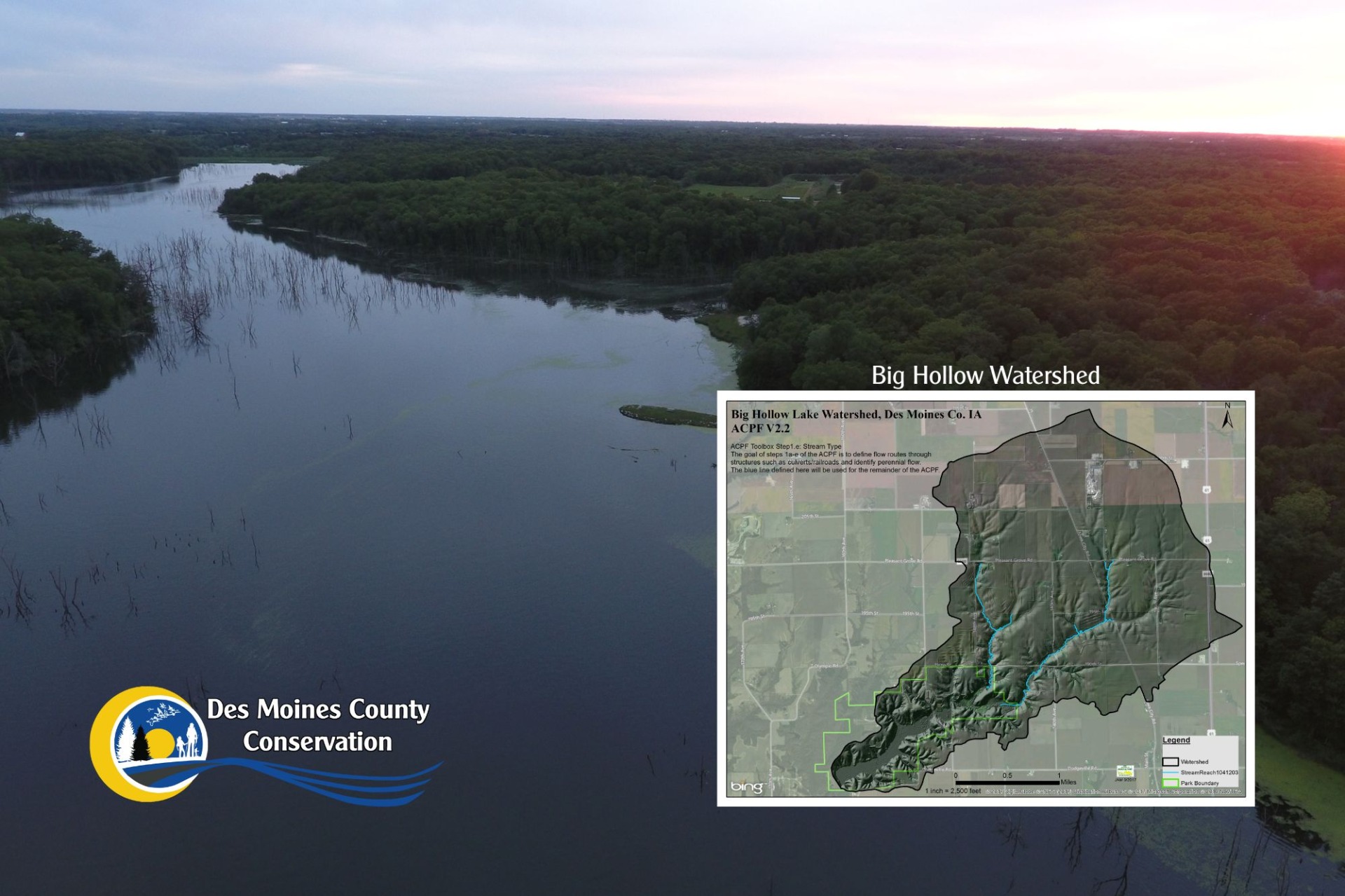
Watershed Coordinator is the Next Step for Big Hollow's Water Quality
The next step in the Big Hollow Lake water quality process to get someone hired to be the "point person" for the improvements in the watershed.Chris Lee, Executive Director
For years now (literally!), we've been working with multiple state and federal agencies to improve the water quality in Big Hollow Lake. Last year, we saw the completion of a federally approved watershed improvement plan and with that, we now qualify for federal funding through the 319 program.
Planning stage, check.
Now it's time to start seeing some results. From the beginning, it's been our intent to hire a watershed coordinator to serve as the main point of contact for all things Big Hollow Watershed. We're finally to that stage. Just today, we shared the job description across our various online channels for a Watershed Coordinator who will be employed through the Des Moines County Soil and Water Conservation District.
As the job description reads, the Watershed Coordinator "will work with producers, landowners, local, state and federal government agencies, private nonprofit organizations, and the public to educate and install conservation practices and systems to improve water quality" throughout Big Hollow's 4,400-acre watershed.
Having the Watershed Coordinator be an employee of the SWCD and not Des Moines County Conservation made sense for a couple reasons. One, the programs and funding mechanisms that will be used most to pay for and incentivize conservation practices in the watershed are almost always going to be ag-based (over 70% of the watershed is used for agricultural production) so working out of the local USDA service center is the logical choice. Second, we don't really have the space or the resources to support this type of position here at the county conservation department. The SWCD and NRCS staff are the experts in this arena and they were willing to host the position, so that's the direction we went.
A similar position to this existed throughout the watershed improvement process at Lake Geode which concluded a couple years ago. We see this one being very similar to that.
So what will this person do, exactly?
The Watershed Coordinator will work directly with landowners inside Big Hollow's watershed to review their operations and find ways they can implement conservation practices without sacrificing their farm's productivity. Over many years of working with producers across the county, we've found that farm profits can often be increased through the strategic use of conservation practices. The Watershed Coordinator will then connect producers with various ag programs to cover the costs of many of these practices.
The Coordinator will also provide education programs to the public regarding conservation efforts and also serve as the central point of coordination regarding record-keeping and tracking progress toward water quality improvement goals.
Along the way, the Coordinator will work closely with DMCC to plan and implement in-park practices. We also have the ability to assist the Coordinator and landowners through our Landowner Services to put some of the practices on the ground such as buffer strips, grassed waterways, or cover crops.
We are incredibly excited to move into this next phase of the water quality improvement process and look forward to working with whoever the Watershed Coordinator ends up being.
published Wednesday, January 4, 2023

